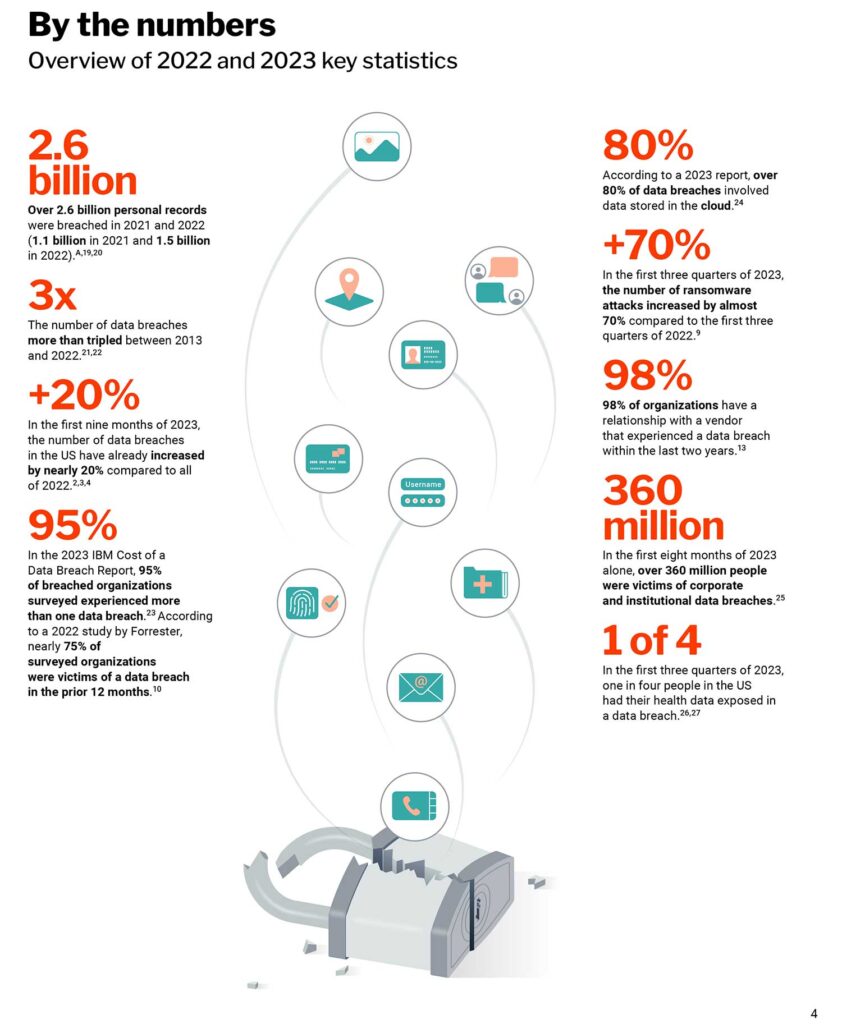Apple Highlights Advanced Data Protection in iCloud Against Cyber Threats, Citing MIT Report. Apple has recently emphasized the importance of its Advanced Data Protection for iCloud, a feature incorporated in the latest iOS 16.2/iPadOS 16.2 and macOS 13.1 updates. This move is in response to the increasing threat of data breaches and ransomware attacks, which have affected billions of personal records in recent years. The feature is designed to secure data on iCloud, ensuring safety even in the event of a cloud data breach.
iOS 17.2 to Introduce Convenient AirDrop Ticket Sharing Feature
The company’s focus on heightened security measures is backed by a detailed report, which brings alarming statistics to light. Authored by Stuart E. Madnick, an emeritus professor at MIT, the report reveals a substantial rise in data breaches and ransomware incidents, highlighting the vulnerability of personal and sensitive data.
According to the report, the United States has experienced a worrying 20% increase in data breaches over the last nine months compared to the previous year. These breaches range from unintentional data losses to intentional cyber attacks, posing a significant threat to individual privacy and security.
September alone saw a spike in ransomware attacks, surpassing the total number recorded in the first three quarters of 2022. This surge underscores the growing sophistication and frequency of these cyber threats.
The report also notes that one in four Americans had their health-related data exposed in some way during the first nine months of 2023. This statistic further emphasizes the critical need for robust data protection strategies.

In its report, Apple underscores the necessity of end-to-end encryption as a means to safeguard against such threats. The company points out that several tech giants, including Google, Meta, Proton, and Signal, are already employing such encryption methods to protect user data.
The introduction of Advanced Data Protection in iCloud significantly enhances Apple’s security measures. The feature now extends end-to-end encryption to 23 different data categories, including iCloud Backup, Photos, and Notes, up from the previous 16.
However, with Advanced Data Protection enabled, the responsibility for data recovery shifts to the user. Apple is unable to assist with account recovery due to its lack of access to encryption keys. Users must rely on their device password, passcode, a recovery contact, or a recovery key. Before activating this feature, Apple advises users to set up a recovery method and ensure all their devices are updated to support this functionality.
In addition to Advanced Data Protection, Apple introduces Isolation Mode. This feature is designed for users who, due to their identity or activities, might face sophisticated digital threats. Available in the latest versions of iOS/iPadOS and macOS Ventura, Isolation Mode adds an extra layer of protection by imposing strict limits on certain apps, functions, and websites, minimizing the risk of targeted spyware attacks.
Together, these measures demonstrate Apple’s commitment to enhancing user security and privacy in an increasingly digital and interconnected world. The company’s efforts, informed by expert insights and alarming trends in cyber threats, aim to provide users with the tools and knowledge necessary to protect their sensitive information.



